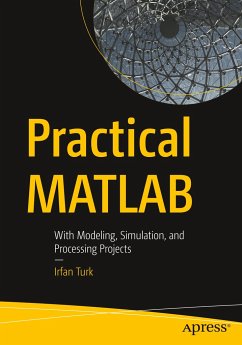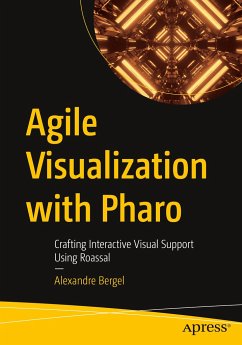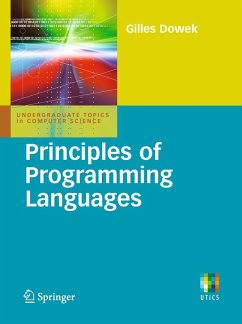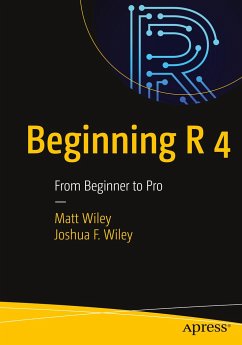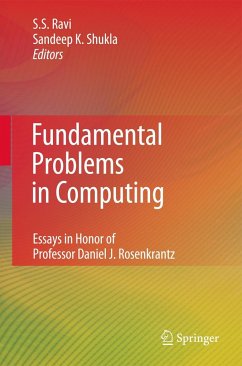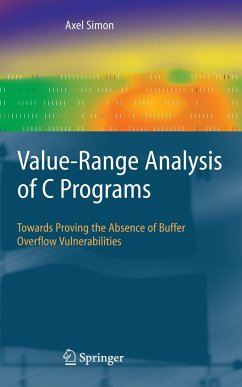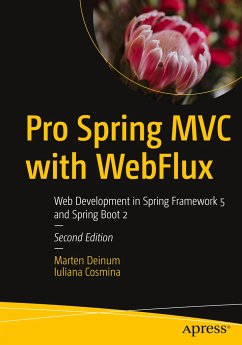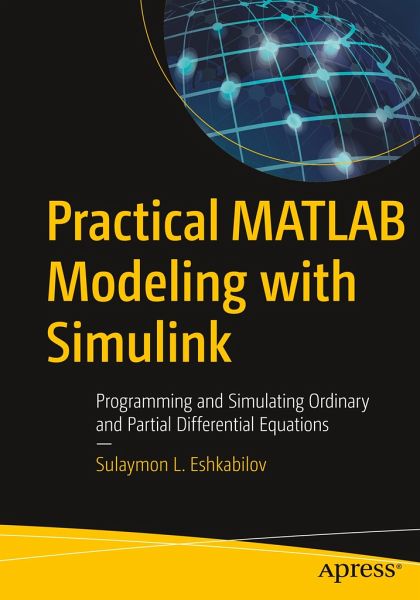
Practical MATLAB Modeling with Simulink
Programming and Simulating Ordinary and Partial Differential Equations

PAYBACK Punkte
25 °P sammeln!
Employ the essential and hands-on tools and functions of MATLAB's ordinary differential equation (ODE) and partial differential equation (PDE) packages, which are explained and demonstrated via interactive examples and case studies. This book contains dozens of simulations and solved problems via m-files/scripts and Simulink models which help you to learn programming and modeling of more difficult, complex problems that involve the use of ODEs and PDEs.You'll become efficient with many of the built-in tools and functions of MATLAB/Simulink while solving more complex engineering and scientific ...
Employ the essential and hands-on tools and functions of MATLAB's ordinary differential equation (ODE) and partial differential equation (PDE) packages, which are explained and demonstrated via interactive examples and case studies. This book contains dozens of simulations and solved problems via m-files/scripts and Simulink models which help you to learn programming and modeling of more difficult, complex problems that involve the use of ODEs and PDEs.
You'll become efficient with many of the built-in tools and functions of MATLAB/Simulink while solving more complex engineering and scientific computing problems that require and use differential equations. Practical MATLAB Modeling with Simulink explains various practical issues of programming and modelling.
After reading and using this book, you'll be proficient at using MATLAB and applying the source code from the book's examples as templates for your own projects in data science or engineering.
What You Will LearnModel complex problems using MATLAB and SimulinkGain the programming and modeling essentials of MATLAB using ODEs and PDEsUse numerical methods to solve 1st and 2nd order ODEsSolve stiff, higher order, coupled, and implicit ODEsEmploy numerical methods to solve 1st and 2nd order linear PDEsSolve stiff, higher order, coupled, and implicit PDEsWho This Book Is For
Engineers, programmers, data scientists, and students majoring in engineering, applied/industrial math, data science, and scientific computing. This book continues where Apress' Beginning MATLAB and Simulink leaves off.
You'll become efficient with many of the built-in tools and functions of MATLAB/Simulink while solving more complex engineering and scientific computing problems that require and use differential equations. Practical MATLAB Modeling with Simulink explains various practical issues of programming and modelling.
After reading and using this book, you'll be proficient at using MATLAB and applying the source code from the book's examples as templates for your own projects in data science or engineering.
What You Will LearnModel complex problems using MATLAB and SimulinkGain the programming and modeling essentials of MATLAB using ODEs and PDEsUse numerical methods to solve 1st and 2nd order ODEsSolve stiff, higher order, coupled, and implicit ODEsEmploy numerical methods to solve 1st and 2nd order linear PDEsSolve stiff, higher order, coupled, and implicit PDEsWho This Book Is For
Engineers, programmers, data scientists, and students majoring in engineering, applied/industrial math, data science, and scientific computing. This book continues where Apress' Beginning MATLAB and Simulink leaves off.





